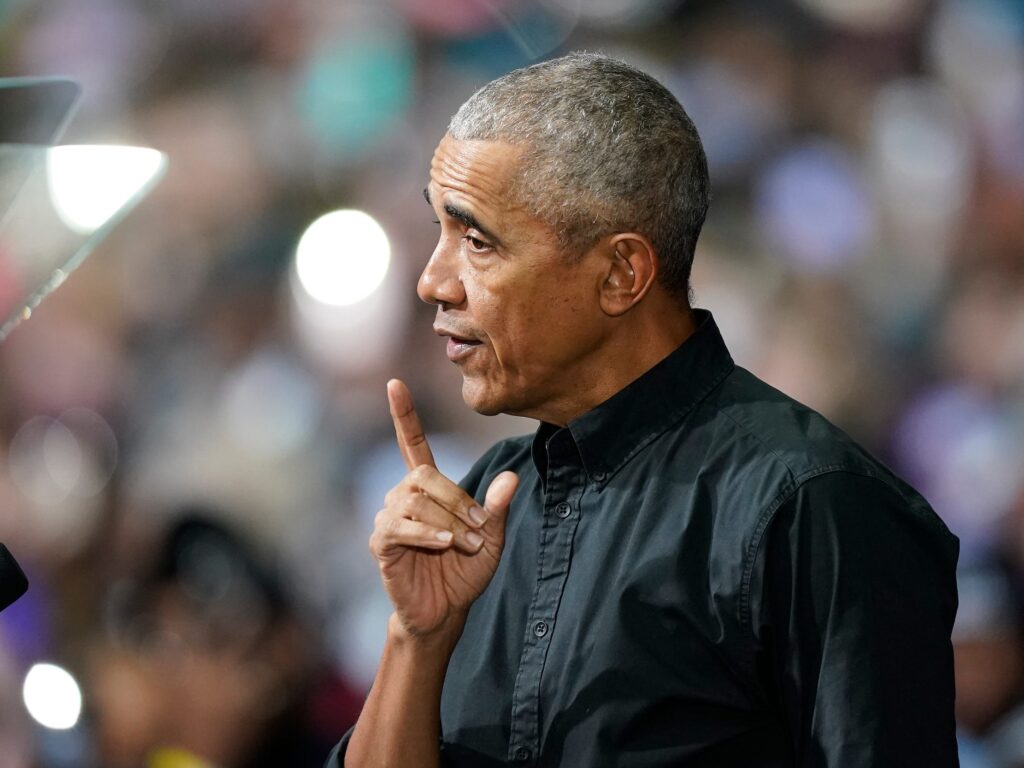- Former President Barack Obama said more states should drop degree requirements for government jobs.
- That’s as several states have done so this year, highlighting the policy’s bipartisan appeal.
- The policy targets workers who quit the labor force due to the lower pay offered by jobs for which they qualify.
Former President Barack Obama wants states to spread the six-figure love to those without bachelor’s degrees.
That’s what the Harvard Law graduate suggested on Twitter this week, sharing an article by Vox reporter Rachel M. Cohen arguing that companies should end “degree inflation” — a term that describes employers who instill education requirements for jobs that don’t need them.
It’s a practice that a number of state governments have eliminated recently. Pennsylvania’s new governor, Democrat Josh Shapiro, for instance, got rid of a four-year degree requirement this year for the vast majority of jobs in the state government. Over the last two months, both Alaska and Georgia — states with Republican governors — have taken similar steps, with an executive order in the former and pending legislation in the latter, representing an increasingly popular method of tackling the United States’ persisting labor shortage with bipartisan appeal.
It’s an example of “a smart policy that gets rid of unnecessary college degree requirements and reduces barriers to good paying jobs,” Obama said on Twitter. “I hope other states follow suit!”
President Joe Biden shares Obama’s enthusiasm for this type of policy, giving Ohio a shout-out during his State of the Union address last month. New factories in the state could offer thousands of “jobs paying $130,000 a year, and many don’t require a college degree,” he said.
Obama and Biden are taking aim at an enduring norm. College grads still earn more than workers with no university degree, even as Americans struggle under the weight of college debt and overall enrollment sinks across the country. Additionally, a 2017 report found that degree requirements were unnecessary for millions of jobs, and disproportionately impacted Black and Latino workers, who hold fewer degrees than their white peers.
The comments from Biden and Obama, as well as the new state laws cropping up, highlight that the country has had a difficult time addressing its labor shortage. Experts have argued that in many cases, people who have left the workforce don't want to return because their pay wouldn't be worth the amount of effort they'd have to give.
"If you were a low-wage worker, why aggressively attempt to go back to work at a lousy, low-paying job, when you can make more money collecting unemployment benefits," Daniel Alpert, a senior macroeconomics professor at Cornell University, wrote in The New York Times in 2021. "Businesses are paying tens of millions of workers too little money relative to the cost of living in this country."
Democrats and Republicans scramble to throw their support behind degree-free policies
Obama's comments come a few months after Pennsylvania Gov. Josh Shapiro signed his first executive order in January 2023 removing four-year degree requirements for an estimated 65,000, or 92%, of state civil service positions.
As Cohen points out, Democrats have struggled in recent years to garner support from non-college-educated voters, especially men — a group fleeing the workforce in droves.
In recent years, states have eliminated four-year degree requirements to shore up their understaffed governments, and Republican governors have led the way.
Up against some 8,600 vacancies in its executive branch in January 2022 — more than any time since the Great Recession in 2008 — Maryland's former Gov. Larry Hogan was the first to announce that the state would open up thousands of state government roles to workers who didn't have degrees. Alongside their college-credentialed counterparts, the state would consider candidates who obtained training through community college, military service, boot camps, and working. There are more than 70 million such Americans nationwide.
The state, which has seen an increase in vacancies amongst executive state government roles, estimated that these workers without degrees could substitute for nearly half of the state's 38,000-person workforce, according to The Bay Net.
Other states have followed suit. Utah Gov. Spencer Cox announced in December 2022 a "skills-first" hiring initiative eliminating a bachelor's degree requirement on 98% of the state's 1,080 government jobs, according to ABC4. Days later, Democratic Gov. Jarid Polis of Colorado ordered state agencies to transition to skills-based hiring. Arizona and Oregon have temporarily loosened degree requirements to address a teacher shortage. Georgia and Alaska are considering dropping degree requirements to fill government vacancies as well.
